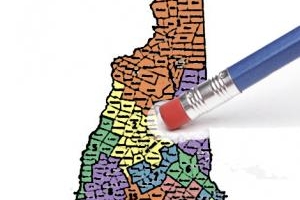Should NH give the power to draw voting districts to an independent commission, instead of the Legislature?

Currently in New Hampshire, the power to draw the boundaries of voting districts for congressional, legislative, and Executive Council seats lies with the state Legislature. But that could change, if HB 203 passes. The bill would transfer power to draw voting districts from the Legislature to an independent commission.
Several other states use redistricting commissions to draw electoral, congressional, and/or legislative districts. The ultimate powers of those commissions vary from state to state, with some having full control over redistricting while others serve more as an advisory board.
Voting districts must be redrawn following the results of every U.S. Census. This occurred most recently in 2012.
The commission would be made up of 7 members. The first four would be appointed one each respectively by the speaker of the New Hampshire House, the president of the New Hampshire Senate, and the minority leaders of the House and Senate.
The remaining three members would be elected by the first four, with a majority vote of at least three commission members required. No more than two members of the commission can have their domicile in any one county of the state.
The bill would also set strict standards for how districts should be drawn, such as prioritizing including whole towns or cities as much as possible, while taking into account ‘common interests and historical connections’. The entire process, including all communications between commission members, would be made available to the public.
Redistricting plans completed by the commission would still need to be ratified by a constitutional majority in both branches of the Legislature, with strict limits to how the plan can be changed or amended.
Supporters of vesting the power to draw voting districts with an independent commission argue that the move would create more fair and balanced districts that better represent their constituents, reducing the chances that districts will be drawn specifically to benefit one political party over another.
Opponents counter that there is no guarantee that commissions will be less partisan, and argue that legislators, as the duly elected representatives of NH citizens, should retain the power to determine voting districts.
Do you think NH should give the power to draw voting districts to an independent commission? Leave a comment to join the discussion.
UPDATE: Read our Citizen Voices℠ report and find out where New Hampshire stands on this issue.











Comments
Login or register to post comments